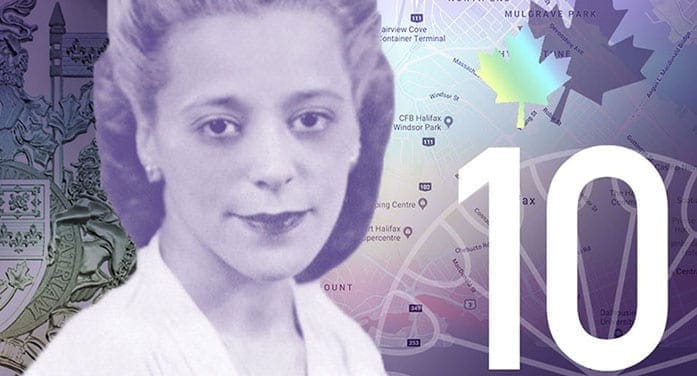Do you know about the Black Canadian inventor whose innovations were associated with the phrase “the real McCoy?”
How about the Black Canadian vocalist who became an international star decades before Celine Dion ever set foot on a stage? Or the Black hockey league that was founded in Nova Scotia in the late 19th century, comprising a dozen teams and 400 players at its peak?
These sorts of historical facts often get mentioned during Black History Month, but Kathy Robinson, a professor in the Department of Elementary Education at the University of Alberta, said she wants to see them become part of the Canadian history taught in classrooms all year long.
Putting educational resources in the hands of future elementary teachers seemed like a good way to start, so Robinson drew on the talents of fellow professors, sessional instructors, grad students and non-academic staff in the Faculty of Education to create a series of brief profiles featuring key figures and events in Black Canadian history.
“It’s appropriate in any month to commemorate contributions Black Canadians have made to our country,” Robinson said. “This gets us started. Hopefully we won’t just have a month, we will have these people and their literary works and music and all kinds of things integrated into our curriculum.”
Born in the United States, Robinson said February has always been Black History Month to her, but she was surprised that Alberta didn’t officially proclaim it until 2017. That’s the year she started asking colleagues to research stories of Black Canadians in their areas of interest to share with her undergraduate students, in hopes that the aspiring teachers would carry the stories into classrooms.
The profiles range from well-known figures like jazz pianist Oscar Peterson and activist Viola Desmond, who is depicted on Canadian currency, to names that are less well known today, like operatic contralto Portia White, a worldwide singing sensation in her time, and inventor Elijah McCoy. McCoy held more than 57 patents in his life, including a locomotive lubrication system patented in 1872 that prevented overheating. By some accounts, the invention spawned numerous lesser imitations, prompting railroad engineers to ask for “the real McCoy,” though this etymology is disputed.
Robinson said it wasn’t just her students who were surprised by some of the history detailed in the profiles.
“I got many comments from faculty and instructors who had no idea about these people and the contributions they have made,” she said. “Many people know the name Viola Desmond, but do they know Portia White, who was the first Canadian singer of international stature? Even my music education colleagues said they had never heard of her.”
As someone with expertise in music education, Robinson said she’d also like to see music curriculum expanded to embrace greater cultural diversity. One of Robinson’s graduate students, Stephanie Schuurman-Olson, analyzed the list of songs proposed for inclusion in Alberta’s kindergarten to Grade 2 music curriculum and found a number of racially problematic selections – an investigation that began in one of Robinson’s courses. Robinson said many popular songs for children have questionable origins, racially derogatory content and other inappropriate subject matter – songs that became part of the canon and have been passed down to North American music teachers through the years.
“These decisions to really scrutinize our song repertoire are difficult because we realize we have to leave some songs behind,” she said. “Some of these songs are in our hearts, so it’s a bit of a mourning process. But that makes room for new songs.”
As with history curriculum, Robinson said a modern music curriculum should include songs that more closely mirror the cultural makeup found in Canadian schools for the benefit of all students, no matter their background.
“I think everyone should see themselves reflected in the curriculum. If you’re learning things and have no reference point to your culture, something you can connect with what’s going on in your life, you feel disengaged,” Robinson said.
“I think it’s essential we have much more diversity in the music we bring to our children to reflect the diversity we have in our classrooms. Children are going to have to interact with people who think and act differently than they do, so it’s preparation for being an Albertan citizen or a Canadian citizen or a citizen of the world.”
| By Scott Lingley for Troy Media
This article first appeared in Folio, published by the University of Alberta. Folio is a Troy Media![]() Editorial Content Provider Partner.
Editorial Content Provider Partner.
COMMUNITY NEWS OUTLET ACTION PLAN!
WEBSITE HOSTING AND ALL TROY MEDIA EDITORIAL CONTENT POSTED TO YOUR SITE DAILY FOR ONLY $129.95 PER MONTH.
Limited time offer: Get your first 2 months FREE! Click here for details


